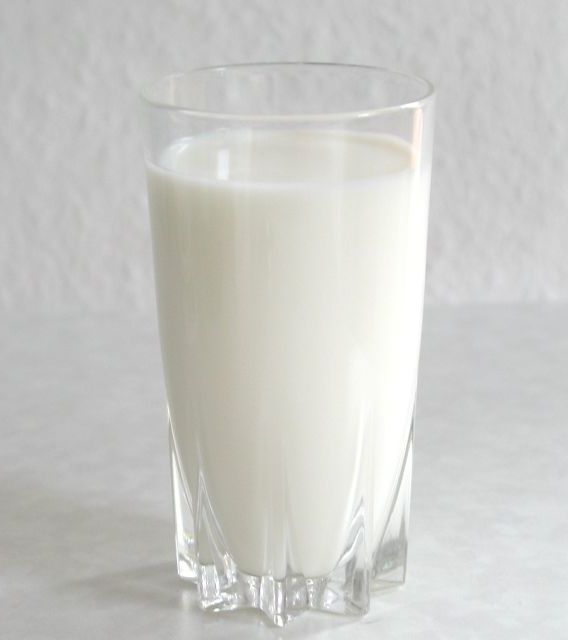milk

A glass of cow's milk.
Meanings
Noun
- A white liquid produced by the mammary glands of female mammals to nourish their young. From certain animals, especially cows, it is also called dairy milk and is a common food for humans as a beverage or used to produce various dairy products such as butter, cheese, and yogurt.
- A white (or whitish) liquid obtained from a vegetable source such as almonds, coconuts, oats, rice, and/or soy beans.
- An individual serving of milk.
- An individual portion of milk, such as found in a creamer, for tea and coffee.
- The ripe, undischarged spat of an oyster.
- Semen.
Verb
- To express milk from (a mammal, especially a cow).
- To draw (milk) from the breasts or udder.
- To express any liquid (from any creature).
- To make excessive use of (a particular point in speech or writing, a source of funds, etc.); to exploit; to take advantage of (something).
- To give off small gas bubbles during the final part of the charging operation.
- To single-mindedly masturbate a male to ejaculation, especially for the amusement and/or satisfaction of the masturbator/trix rather than the person masturbated.
Origin
- From Middle English milk, mylk, melk, mulc, from Old English meolc, meoluc, from Proto-West Germanic *meluk, from Proto-Germanic *meluks, from Proto-Indo-European *h₂melǵ-.
- Cognate with West Frisian molke, Dutch melk, Dutch Low Saxon melk, German Milch, German Low German Melk, Yiddish מילך, Danish mælk, Norwegian Bokmål mjølk, melk, Norwegian Nynorsk mjølk, Swedish mjölk, Icelandic mjólk, Faroese mjólk, Albanian mjel ("to milk"), Polish mleko, Russian молоко́, Welsh blith, Tocharian A malke, Lithuanian malkas, Latvian malks, and possibly Ancient Greek μέλκιον.
- From Middle English milken, from Old English melcan, from Proto-Germanic *melkaną, ultimately from Proto-Indo-European *h₂melǵ-, the same root as the noun. Compare Dutch and German melken, Danish malke, Norwegian mjølke, also Latin mulgeō ("I milk"), Ancient Greek ἀμέλγω ("I milk"), Albanian mjel ("to milk"), Russian молоко́, Lithuanian mélžti, Tocharian A mālk-.
Modern English dictionary
Explore and search massive catalog of over 900,000 word meanings.
Word of the Day
Get a curated memorable word every day.
Challenge yourself
Level up your vocabulary by setting personal goals.
And much more
Try out Vedaist now.

